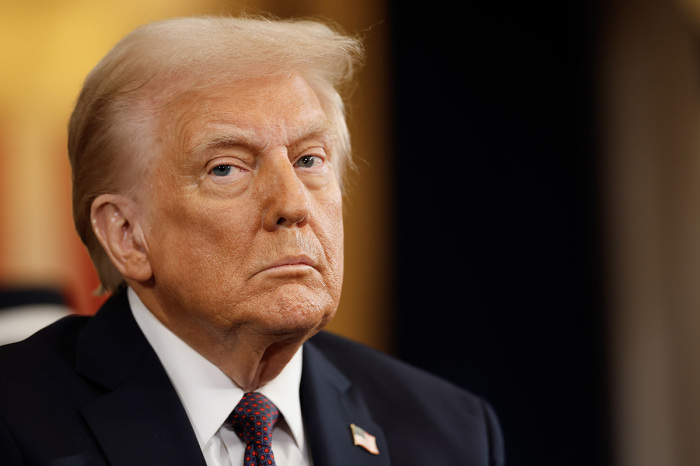
The United States Supreme Court has limited the extent to which lower courts can issue nationwide injunctions against federal government actions.
The high court tackled the issue of nationwide — or “universal injunctions” — in a 6-3 decision released Friday morning in the case of Trump, et al. v. CASA, Inc., et al.
At issue is litigation brought by multiple parties against President Donald Trump’s executive order repealing birthright citizenship, as multiple district courts have issued nationwide injunctions against it.
Justice Amy Coney Barrett delivered the opinion of the court, joined by Chief Justice John Roberts, and Justices Clarence Thomas, Samuel Alito, Neil Gorsuch and Brett Kavanaugh.
The majority did not address whether the Trump order was unconstitutional but instead focused on the government’s request to limit the injunctions to the named plaintiffs in the lawsuits.
Barrett described nationwide injunctions as “more recent development” that “likely exceed the equitable authority that Congress has granted to federal courts.”
“A universal injunction can be justified only as an exercise of equitable authority, yet Congress has granted federal courts no such power,” she wrote, adding that, historically, courts have “consistently rebuffed requests for relief that extended beyond the parties.”
Barrett cited a Harvard Law Review study, which found that of the 127 universal injunctions issued between 1963 and 2023, 96 of them occurred after the year 2000.
“The bottom line? The universal injunction was conspicuously nonexistent for most of our Nation’s history. Its absence from 18th and 19th century equity practice settles the question of judicial authority,” she added.
The majority partly granted the Trump administration’s request to stay the injunctions, “but only to the extent that the injunctions are broader than necessary to provide complete relief to each plaintiff with standing to sue.”
“The lower courts shall move expeditiously to ensure that, with respect to each plaintiff, the injunctions comport with this rule and otherwise comply with principles of equity,” Barrett concluded.
“The injunctions are also stayed to the extent that they prohibit executive agencies from developing and issuing public guidance about the Executive’s plans to implement the Executive Order.”
Additionally, the executive order will not take effect until 30 days after the Supreme Court opinion in this case was issued.
Justice Sonia Sotomayor authored one of the dissenting opinions. She was joined by Justices Elena Kagan and Ketanji Brown Jackson, in which she claimed that the majority “shamefully … plays along” with the Trump administration’s “gamesmanship.”
“A majority of this Court decides that these applications, of all cases, provide the appropriate occasion to resolve the question of universal injunctions and end the centuries-old practice once and for all,” Sotomayor wrote.
“In its rush to do so the Court disregards basic principles of equity as well as the long history of injunctive relief granted to nonparties. … No right is safe in the new legal regime the Court creates. Today, the threat is to birthright citizenship. Tomorrow, a different administration may try to seize firearms from law-abiding citizens or prevent people of certain faiths from gathering to worship.”
In January, President Donald Trump issued an executive order that sought to remove automatic citizenship to children born to undocumented immigrants in the U.S., with the order slated to take effect 30 days after it was signed.
While the 14th Amendment says, “All persons born or naturalized in the United States, and subject to the jurisdiction thereof, are citizens of the United States and of the State wherein they reside,” the order contends it was never meant “to extend citizenship universally to everyone born within the United States.”
“The Fourteenth Amendment has always excluded from birthright citizenship persons who were born in the United States but not ‘subject to the jurisdiction thereof,'” the executive order claimed.
Trump barred the government from issuing “documents recognizing United States citizenship” for newborns whose “mother was unlawfully present in the United States and the person’s father was not a United States citizen or lawful permanent resident at the time of said person’s birth, or … when that person’s mother’s presence in the United States was lawful but temporary, and the person’s father was not a United States citizen or lawful permanent resident at the time of said person’s birth.”
Trump’s order soon faced multiple lawsuits, including one filed by the American Civil Liberties Union and other progressive advocacy organizations.
U.S. District Judge John C. Coughenour, a Reagan appointee based in Seattle, ruled in January that the order was “blatantly unconstitutional” during a hearing on a suit filed by the states of Washington, Arizona, Illinois and Oregon.
U.S. District Judge Deborah L. Boardman of Maryland, a Biden appointee, issued a nationwide injunction in February against the executive order, expanding upon an earlier temporary injunction issued by a different court.
“The executive order conflicts with the plain language of the 14th Amendment, contradicts 125-year-old binding Supreme Court precedent and runs counter to our nation’s 250-year history of citizenship by birth,” wrote Boardman.
In 1898, the Supreme Court ruled 6-2 in United States v. Wong Kim Ark that an individual born in California was indeed a citizen of the United States, even though his parents were Chinese nationals.
















